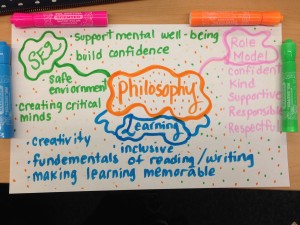As the month of January comes to an end I am realizing how fast time goes by in the classroom. As I discussed with my SA, I have become aware of the many things that get left behind when teaching a certain unit. A new month is exciting because it brings forth new teachings but it also means we are closer to report cards and the panic kind of sets in….have we covered everything we were suppose to?
During calendar with the Kindergartens I try to make things a little different and add in my own brain breaks or questions to ask the students. The students to not hesitate to tell me that I am not doing what I am suppose to be doing but I go on with it anyways. This week I taught them a new song “Babar the Elephant” after the special helper had done his job. They loved it! However, I noticed one of my student’s not participating. I asked him to stand up during the second round of singing but instead he decided to stay seated and not sing. I did not acknowledge it again until it was time to dismiss everyone for recess. I dismissed each student one by one as they gave me a number sentence with a number I held up for them. I left the last one to the student who refused to participate and asked him about it. His response was that he did not feel like being a part of the song. I told him politely that he is a part of the class and as a class when we do something together he must participate. He seemed to agree and I said that I would be watching for him next week and hope to see him be a part of the song. I know that this student would not have this kind of attitude with my SA so I could tell that he was testing me to see what I would do if he just stayed seated.
